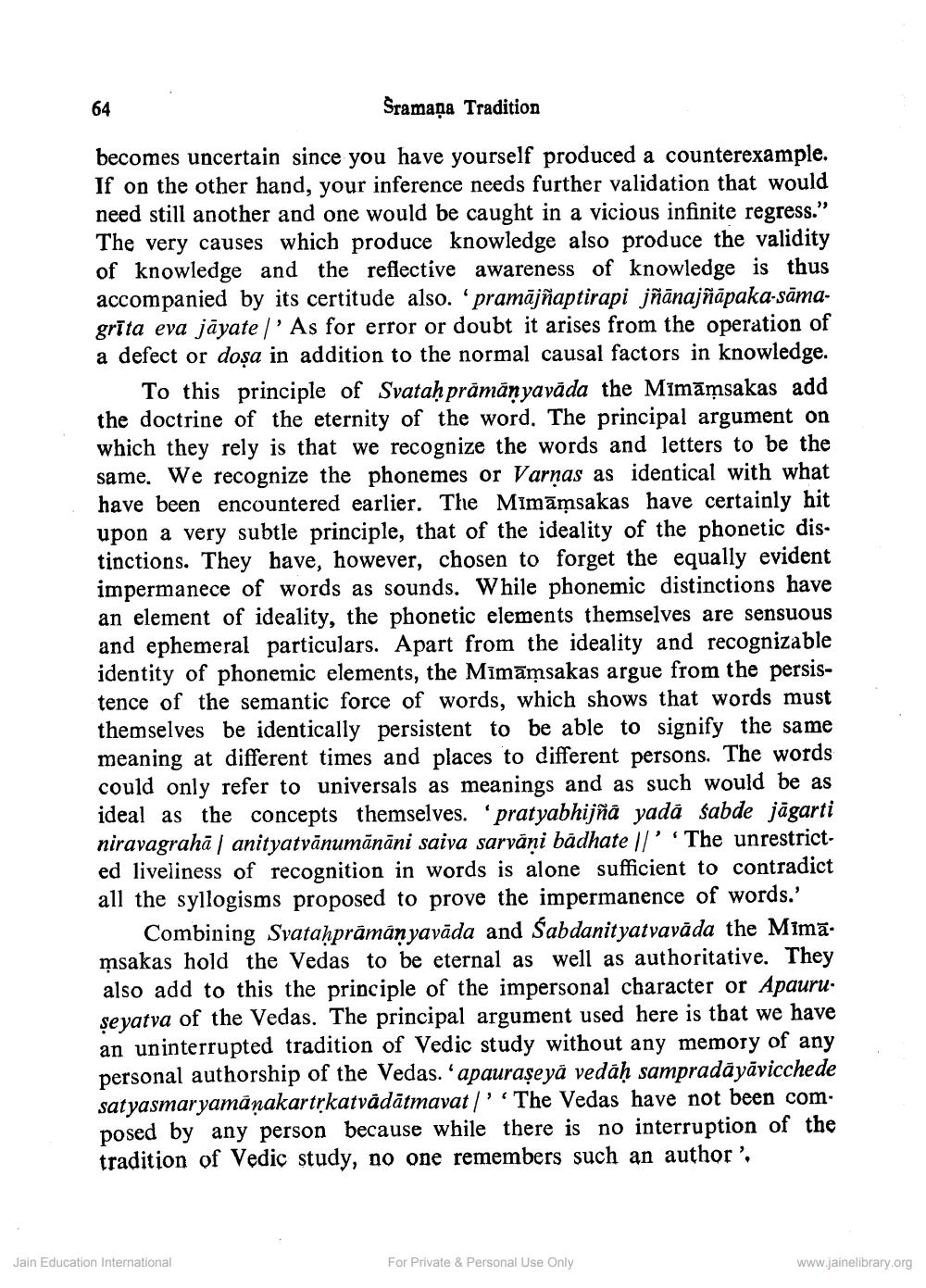________________
64
Sramaņa Tradition
becomes uncertain since you have yourself produced a counterexample. If on the other hand, your inference needs further validation that would need still another and one would be caught in a vicious infinite regress." The very causes which produce knowledge also produce the validity of knowledge and the reflective awareness of knowledge is thus accompanied by its certitude also. 'pramājñaptirapi jñānajñāpaka-sāmagrīta eva jāyate l' As for error or doubt it arises from the operation of a defect or dosa in addition to the normal causal factors in knowledge.
To this principle of Svataḥ prāmānyavāda the Mimāmsakas add the doctrine of the eternity of the word. The principal argument on which they rely is that we recognize the words and letters to be the same. We recognize the phonemes or Varnas as identical with what have been encountered earlier. The Mimāmsakas have certainly hit upon a very subtle principle, that of the ideality of the phonetic distinctions. They have, however, chosen to forget the equally evident impermanece of words as sounds. While phonemic distinctions have an element of ideality, the phonetic elements themselves are sensuous and ephemeral particulars. Apart from the ideality and recognizable identity of phonemic elements, the Mimāmsakas argue from the persistence of the semantic force of words, which shows that words must themselves be identically persistent to be able to signify the same meaning at different times and places to different persons. The words could only refer to universals as meanings and as such would be as ideal as the concepts themselves. 'pratyabhijñā yadā sabde jägarti niravagrahā , anityatvānumānāni saiva sarváni badhate // The unrestricted liveliness of recognition in words is alone sufficient to contradict all the syllogisms proposed to prove the impermanence of words.'
Combining Svataḥprāmányavāda and Sabdanityatvavāda the Mimā. msakas hold the Vedas to be eternal as well as authoritative. They also add to this the principle of the impersonal character or Apauruseyatva of the Vedas. The principal argument used here is that we have an uninterrupted tradition of Vedic study without any memory of any personal authorship of the Vedas. 'apauraşe yä vedäh sampradāyāvicchede satyasmaryamânakartrkatvådātmavat/' The Vedas have not been com posed by any person because while there is no interruption of the tradition of Vedic study, no one remembers such an author',
Jain Education International
For Private & Personal Use Only
www.jainelibrary.org




